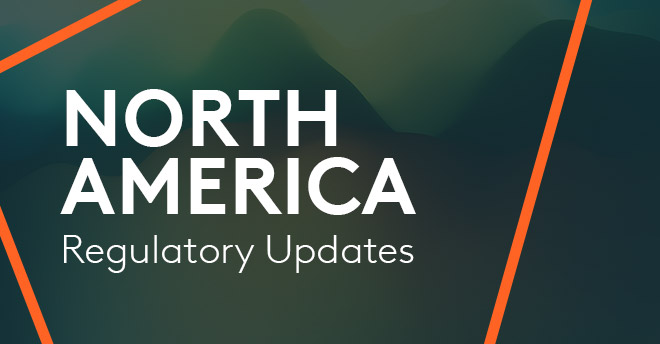US
The Federal Register (2024-06717) Proposes Revisions to the Annual Report of Foreign Banking Organizations (FR Y-7)
The Board proposes to revise the annual FR Y–7 report, effective beginning December 31, 2024, inlcuding changing the due date from four months after the reporter’s fiscal year end to 120 calendar days (to be consistent with the Annual report of Holding Companies (FR Y-6) Report due date). The Board proposes to add an electronic filing option for the FR Y–7 and to automate and add standard templates for a portion of reporting item one, financial statements; a portion of item two, organization chart; all of item three, shares and shareholders; all of item four, eligibility as a qualified foreign banking organization; and all of item five, prudential standards compliance. Comments must be submitted by May 28, 2024.
Office of the Comptroller of the Currency (OCC) Remarks on Artificial Intelligence (AI), Inequality and Compliance Vigilance
The OCC Acting Comptroller issued remarks on emerging technology, the role of compliance risk management, and vigilance to ensure fairness by compliance officers at the Consumer Bankers Association (CBA) LIVE 2024. The speed of financial digitization, impact of pandemic life and need for Americans to meet daily expenses have coincided with an expanded use of third-party arrangements, creating an environment for cyber risk to thrive across retail banking channels. Another area of concern, Artifical Intelligence & Machine Learning (AI/ML) presents unique discrimination challenges. For example, special attention needs to be paid to biases in training data and in supervised and reinforcement learning.
Canada
The Office of the Superintendent of Financial Institutions (C-OSFI) Comments on Climate (ESG), Capital, and Commercial Real Estate (CRE) Risks
The C-OSFI’s Superintendent commented on the Canadian regulatory environment at the National Bank of Canada Annual Conference. He noted that Basel III upgrades were relatively quickly to implement, while other jurisdictions, like the US, tend to have public-rules based processes that take longer to implement. Generally speaking, the international implementation of Basel III is being closely monitored due to concerns about Canadian institutions’ ability to effectively compete and take reasonable risks. The Commercial Real Estate (CRE) issue remains a top risk with high rates, falling demand, and valuations crushed by vacancies. Regarding Climate (ESG) Reporting, financial risks are not explicitly reflected in OSFI regulatory capital rules, due to a lack of forward-looking data; banks need to incorporate climate risk in their internal capital adequacy assessments (ICAAP) which include a climate risk category.
Global
The Bank of International Settlements (BIS) Basel Committee Issued Paper on Resources for Banking Supervision
The Basel Committee published a paper entitled “Under Pressure: Taking Stock of Supervisory Resources”, providing an overview of banking supervision across selected jurisdictions. Supervision relies on authorities having relevant powers, operational independence, legal protection, and the willingness to take timely actions. Supervision will need adequate resources, depending on financial system size, banks’ business models, and the supervisor’s mandate, perimeter, and approach. Resources available for supervision are limited by budgetary constraints and availability of skilled professionals often falling below optimal levels, specifically for large and complex institutions.
